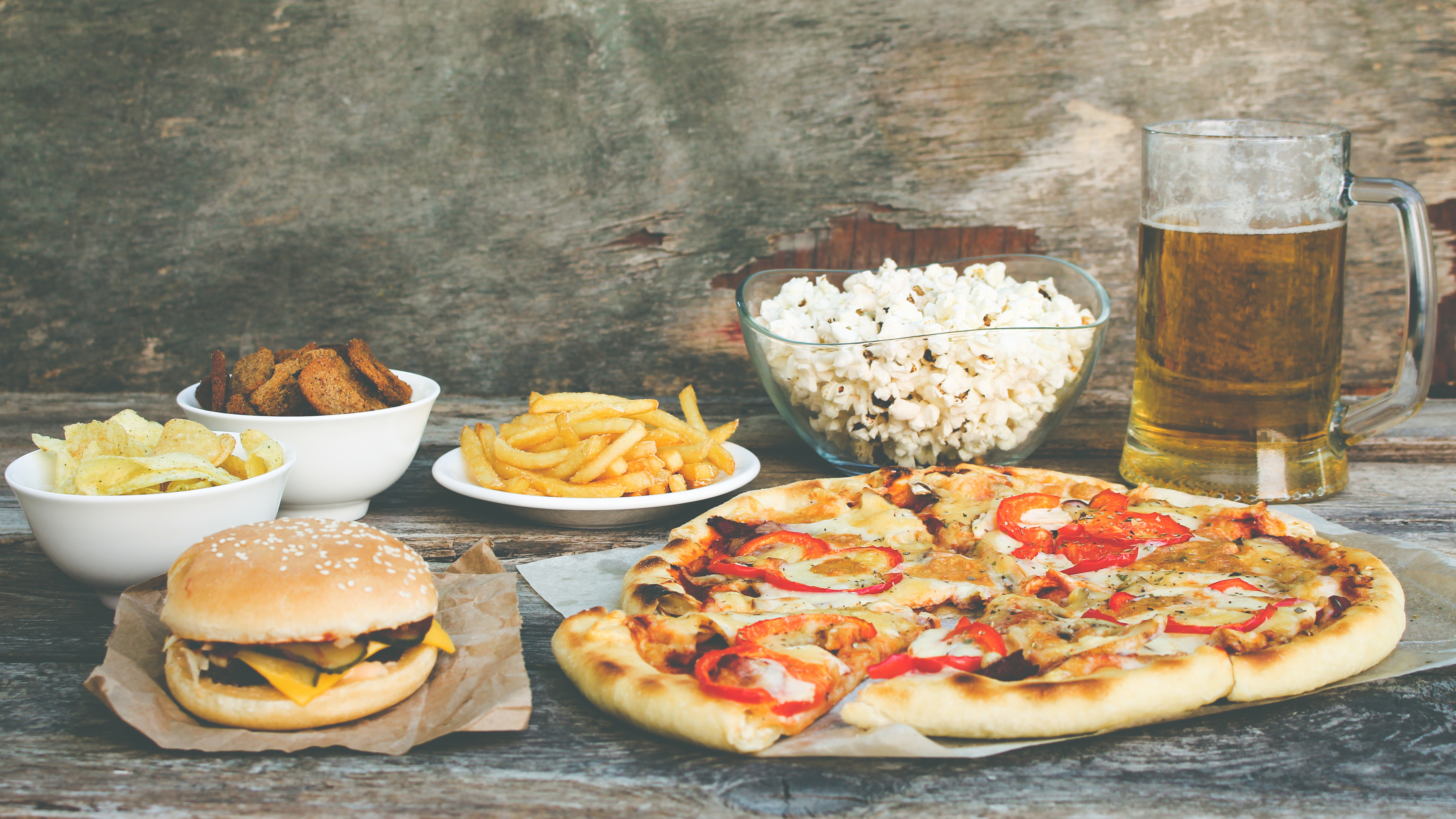Lucky Gene-Edited Mice Binged On Burger-And-Pizza Diet, Didn't Gain Weight
From the day the first calorie was ever counted, people have searched for the one easy get-thin-quick factor to spur weight loss (that does't involve eating less or exercising more). Not that today's mouse study proves positively a quick gateway to thinness, but it could be a step in the right direction.
Scientists have long sought to figure out what makes someone obese: Yes, diet and exercise plays a part, but there are also biological factors in play. Specifically, researchers behind a study published in the journal Molecular Metabolism, reported in Futurity today, point to the enzyme NAMPT: "Genetically deleting the enzyme NAMPT in fat tissue of mice renders them completely resistant to becoming overweight or obese, even on a very fatty diet."
Due to our body's tendency to hang on to our fat stores, and ever-available high-fat foods and larger portion sizes, it seems to just be getting harder and harder for some people to lose weight. But by extracting this enzyme in this study, "When the mice were given high-fat food, the control mice became very obese, yet the mice lacking NAMPT gained no more weight from high-fat food than when they were on the healthier diet." The unhealthy diet basically amounted to "continuously eating burgers and pizza"—but even on that diet, the NAMPT-less mice still didn't gain weight.
Not that any of us can now just go straight to the doctor right now and say, "Take my NAMPT out," much as we'd like to. But "the findings may pave the way for more research into how NAMPT is linked to the storage of fat from the food we eat," which would hopefully help fight obesity in humans, and not just mice.
